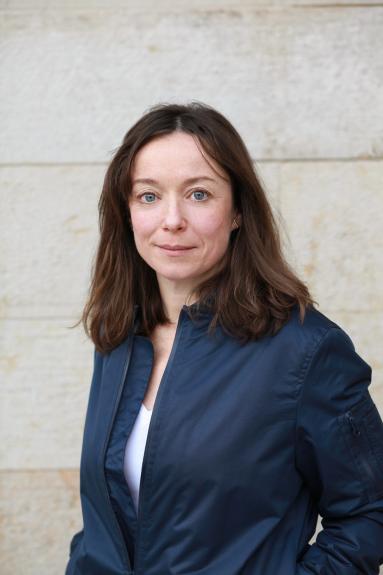Art World
Germany Picks Hungarian Curator Franciska Zólyom to Oversee Its Venice Biennale Pavilion
The director of Leipzig's Museum for Contemporary Art is chosen for her "pro-European understanding of art" that goes beyond national borders.

The director of Leipzig's Museum for Contemporary Art is chosen for her "pro-European understanding of art" that goes beyond national borders.

Hili Perlson

The Hungary-born, Leipzig-based curator Franciska Zólyom will organize the German Pavilion at the 58th Venice Biennale in 2019. She succeeds Susanne Pfeffer, who curated Anne Imhof’s Golden Lion-winning presentation at the 2017 biennale.
Zólyom, who has led Leipzig’s Museum for Contemporary Art (Galerie für Zeitgenössische Kunst) since 2012, previously held positions at Berlin’s Hamburger Bahnhof and at the Ludwig Museum in Budapest. She was also the director of the Institute of Contemporary Art – Dunaújváros in Hungary for three years.
Zólyom’s appointment was announced yesterday, January 23, by the German minister of foreign affairs, Sigmar Gabriel, and the Institute for Foreign Relations (IFA). Gabriel described Zólyom as an “outstanding curator who, given her achievements to date and her involvement in artistic co-production and thus in a pro-European understanding of art, transcends national borders.”
“When I learned that I was selected for this task by the Foreign Office’s art committee, I had about five ideas per minute,” Zólyom told the news channel MDR. “Now it is time to organize these ideas.” In a statement she said that she is looking forward to “an intensive exchange with people who inspire me in their reflections on art and the present.”
Recent shows at the GfzK in Leipzig include solo exhibitions by artists Mario Pfeifer, Leon Kahane, Kateřina Šedá, Seiichi Furuya, Andy Warhol, and John Smith, and thematic exhibitions on the relations between China and Africa, and on Slovak art.
The 58th Venice Biennale is due to open to the public on May 11 (until November 24), 2019.